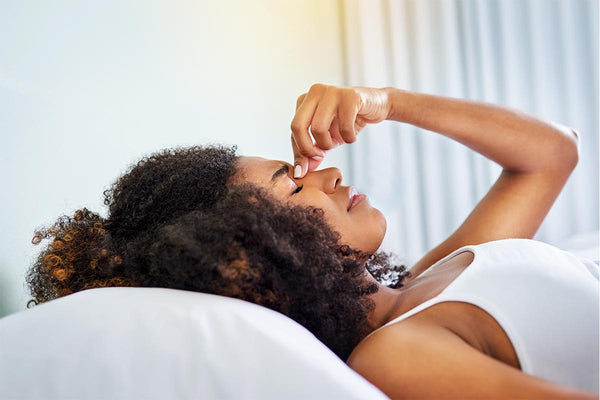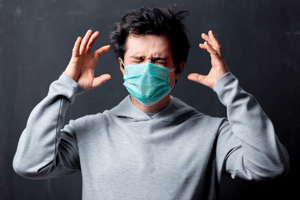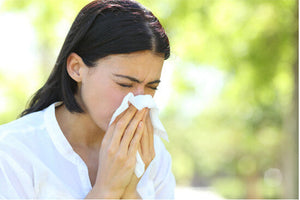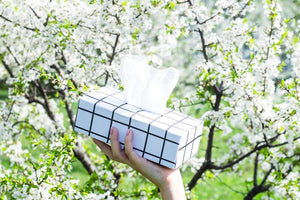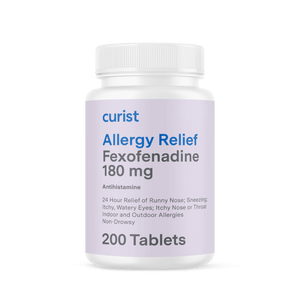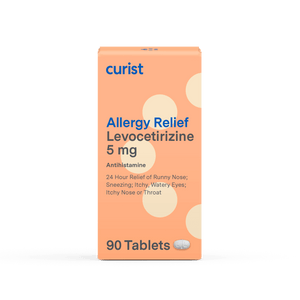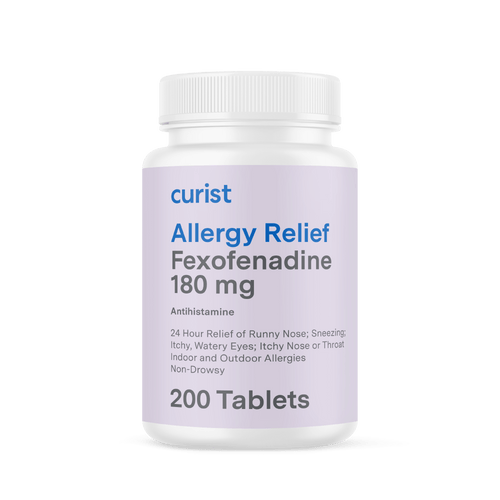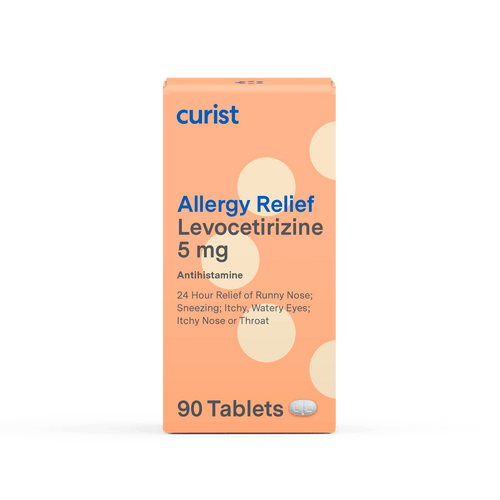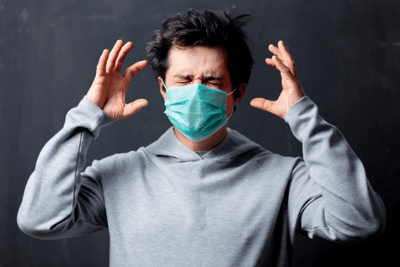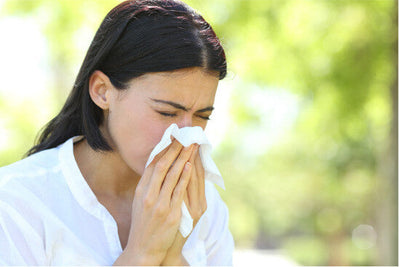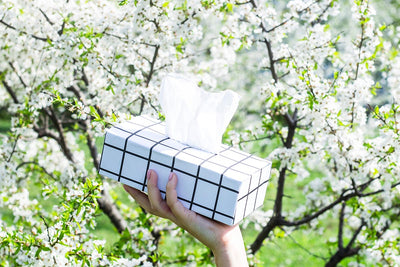by Dr. Marc Goldstein, MD, Curist Medical Advisor
Curist delivers over-the-counter medicines to your door at a fraction of the price of traditional brands. We hope everyone stays safe and healthy during this time.
Allergy symptoms and sleep don’t always make the best of bunkmates. The unruly combination can happen in two ways. Either by robbing your nights of sleep, or filling your days with drowsiness -- or both at once -- allergy season can make you feel like a zombie, or in the worst cases, put you in harm’s way.
Sniffling Instead of Snoozing: Why Allergies Won’t Let You Sleep
It can be very difficult to fall asleep when you are in constant discomfort. Many symptoms of allergic reactions to pollen, dust spores, or animal dander can intensely affect the respiratory system making breathing harder. Relaxing or sleeping with congested nasal passages can be very difficult.
Other common allergy symptoms may be worsened while laying down to sleep. Post-nasal drip irritates the back of the throat. Itchy eyes can be aggravated by even a mildly dusty pillowcase (which is a notorious shelter for pollen and any other particles your hair collects throughout the day).
Allergy Fatigue: Sick, Tired and Drowsy From Allergies
On top of the exhaustion that results from compromised sleep, allergy symptoms themselves can cause fatigue and drowsiness. Indeed, fighting a foreign body takes it out of you. And remember, allergens are merely substances that your body deems harmful. In other words, if allergy season fills your life with sleepy, zombie-like days it’s not just your imagination.
Drowsiness can easily degrade a person’s feeling of overall wellness or affect their work and relationships, but what happens when the drowsiness goes beyond discomfort? Getting behind the wheel of a car while drowsy can be extremely dangerous when sleepiness starts to impair a person’s driving ability.
Studies have shown that allergies and drowsiness negatively affect a person’s reflex time, their decisions, and their motor skills. In the worst cases, it has caused drivers to momentarily fall asleep or get into accidents.
Allergy Antihistamines: Non-Drowsy Benadryl?
For years, the problem of allergy-onset drowsiness grew even worse because the “first generation” of allergy medicine caused even more drowsiness as a side-effect. In fact, the active ingredient in Benadryl, for example, is the same one found in many sleep pills. So unfortunately, there is no “non-drowsy Benadryl,” per se.
But fortunately, people can rest easy. Today there are newer options. Second and thrid generation antihistamines are designed to reduce drowsiness, while still treating allergy symptoms effectively. There are also a number of other treatment options available to allergy sufferers. The list includes nasal sprays, eye drops, and sinus rinses, none of which cause drowsiness.
Drowsiness Comparison: Allegra vs Claritin vs Xyzal vs Zyrtec vs Benadryl vs Flonase
Choosing the right treatment may depend when symptoms are worst. Perhaps a first generation allergy antihistamine could offer relief at night, while a second generation non-drowsy treatment is best for daytime relief.
The important thing is to look at the side effects of each medicine. For your convenience, here is a table of non-drowsy vs drowsy treatments.
Whichever treatment you decide is right for you, be sure to carefully read the labels and warnings. Some medicines require you to avoid other drugs or substances that may interact.
Non-Drowsy Antihistamines
- Fexofenadine (brand Allegra) - second generation antihistamine
- Loratadine (brand Claritin) - second generation antihistamine
Non-Drowsy Nasal Sprays
- Fluticasone (brands Flonase, Curist) - nasal steriod spray, available at Curist here
- Triamcinolone (brand Nasacort) - nasal steriod spray
May Cause Drowsiness
- Levocetirizine (brands Xyzal, Curist) - third generation antihistamine, available at Curist here. Recommended to take at night to avoid daytime drowsiness.
- Cetirizine (brand Zyrtec) - second generation antihistamine
Expect Drowsiness
- Diphenhydramine (brand Benadryl) - first generation antihistamine
